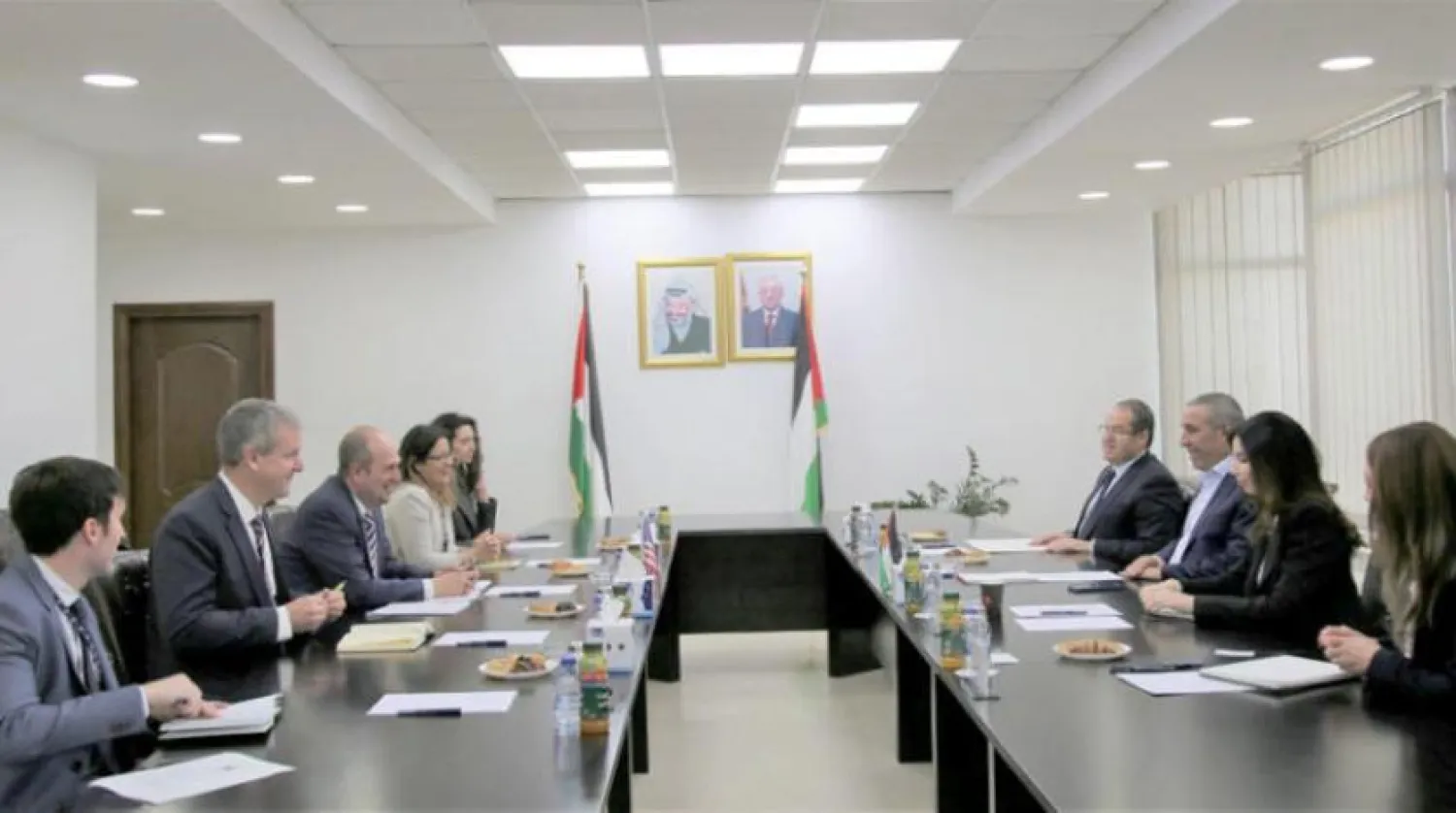Palestinian Prime Minister Mohammad Shtayyeh briefed the US envoy for Palestinian and Israeli affairs, Hady Amr, on the violations and unilateral measures taken by the new extremist Israeli government against the Palestinians.
Amr also met in Ramallah with PLO Secretary-General Hussein al-Sheikh, who said he stressed the need for a political solution that preserves the two-state solution in line with international legitimacy.
Sheikh warned of the Israeli government’s “unilateral measures and daily attacks which destroy the efforts towards a two-state solution and harm security and stability.”
“The US administration is required to move urgently to put an end to the unilateral Israeli measures and threats that undermine the Palestinian Authority and systematically end the possibility of establishing a Palestinian state,” Shtayyeh told the US envoy on Thursday in Ramallah.
He stressed that the upcoming visit of US Secretary of State Anthony Blinken and National Security Adviser Jake Sullivan to the region should carry a message of hope for the Palestinian people and a clear message to the Israeli government that it should stop the violations and unilateral measures and oblige it to respect international law and signed agreements.
The meetings of Shtayyeh and al-Sheikh with Amr coincide with a wave of Palestinian anger over the Israeli sanctions imposed on the Palestinian Authority.
US State Department spokesman Ned Price on Monday condemned the sanctions approved by the Israeli government.
Price referred to the sanctions as a “unilateral response” that will “exacerbate tensions”.
“This is part of the reason why we’ve opposed the Palestinian move when it comes to the ICJ, knowing that it would potentially only serve to increase tensions,” Price said in response to a question during the daily press briefing.
“We believe the Palestinian effort at the UN was counterproductive, only taking the parties further away from the objective of a negotiated two-state solution.”
Moreover, Likud MK Yuli Edelstein told US Ambassador to Israel Tom Nides on Wednesday that the new Israeli government plans to expand settlements in the West Bank, despite the Biden administration’s objections.
“I expressed to the ambassador my clear position regarding the need for construction in the areas of [Jewish] settlement in Judea and Samaria,” Foreign Affairs and Defense Committee Chair Edelstein said.
Edelstein added: “I lived for 28 years in Gush Etzion. I know that life doesn't stop; the families there are developing and it's impossible to put their lives on hold. Construction should continue."
Edelstein's standpoint endorses the guiding principles of Prime Minister Benjamin Netanyahu’s new government stating that the Jewish people have “an exclusive and inalienable right to all parts of the Land of Israel,” including the West Bank.
Likud signed coalition agreements pledging to expand Israeli settlements and advance annexation of large parts of the West Bank.
On Tuesday, Nides told the Kan public broadcaster that Netanyahu understands the US stance in favor of “keep[ing] a vision of a two-state solution alive” as well as its opposition to “legalizing outposts and massive settlement expansion.”









